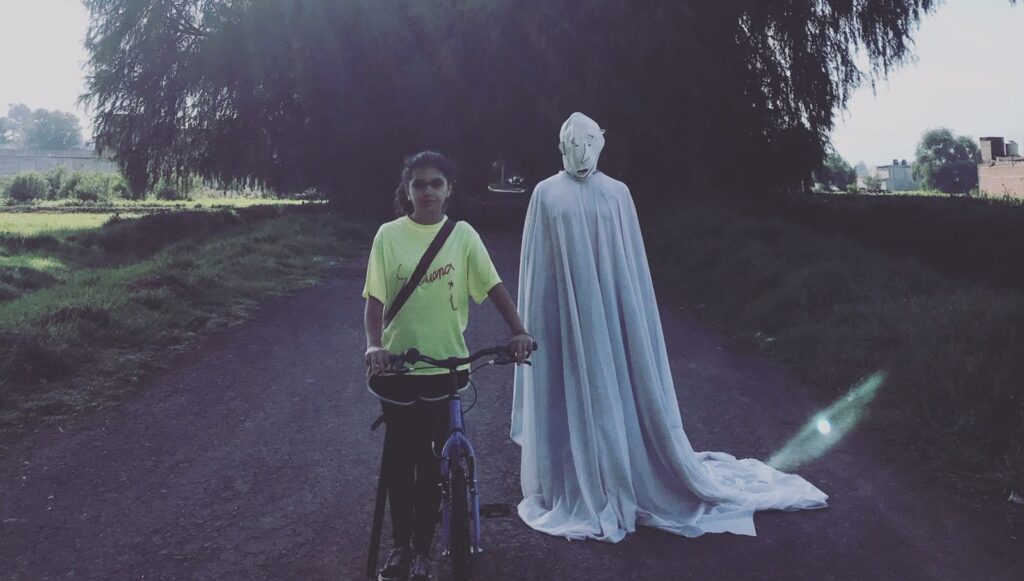In a vertically-oriented iPhone video, director Julio Hernández Cordón tells his daughter Fabi that he wants to make a movie with her. It will be set in his hometown of Texcoco and star his daughter and his friend Paco in ten separate roles, most of which are pulled from the director’s childhood. This sequence is as much a part of The Howls as it is an extra-textual introduction to it, as what follows is a documentary-fiction hybrid less concerned with blurring the lines between forms than it is in utilizing those lines to its specific ends. Much of the film involves Fabi searching for Lake Texcoco, upon which the Aztecs built Tenochtitlan and which, thanks to 20th-century urbanization, no longer exists. Interspersed with scenes of Fabi interacting with Paco’s characters — in the first, he plays her grandfather and presents her with the family rifle — are more straightforward documentary elements, like interviews with town elders about their memories of the lake and knowledge of its history. Most compelling are segments in which the director appears, face covered, to whisper narration into his daughter’s ear. She repeats what he says, and can’t help but smile at recounting the stories of her father’s youth.
This is an ambitious, thoughtful film that combines familial and cultural history into a single, inextricable whole: the poetry of King Nezahualcoyotl is as important as Cordón’s wistful memories of his youth. The Howls is as inflected with the joy of a father sharing his personal history with his child as it is mournful about the destructive encroachment of modern civilization on the land. This modern world, one obsessed with technological progress and which has privatized water, has drained a lake of utmost importance to a region and its people’s history. Given this layered approach, the film’s form and function might give the impression of something more cerebral, but Cordón’s film is refreshingly down to earth, marked by a clarity of information and a wholly unpretentious voice, neither obtuse nor overbearing. One does not have to grasp for meaning in these images or come into the film equipped with knowledge of Mexican history — some specific history not easily inferred is even relayed over the end credits — to pick up on precisely what Cordón seeks to convey. But while the documentary goals of The Howls are certainly realized, the fiction half of this hybrid wears thin even over its brief 68 minutes. At first, watching Fabi play-acting her father’s memories is charming, but the rhythm that these scenes settle into starts to become grating, and the beauty of the film’s images begins to look more like a cheap signifier of whimsy as it leans into the aesthetics of an iPhone commercial. Thankfully, the climax of the narrative, such that it is, affords a terrific summation of the film’s aims, rendering more worthwhile some of the film’s lesser fiction threads, and at least ending things on an up note.
Published as part of Neighboring Scenes 2021.


Comments are closed.